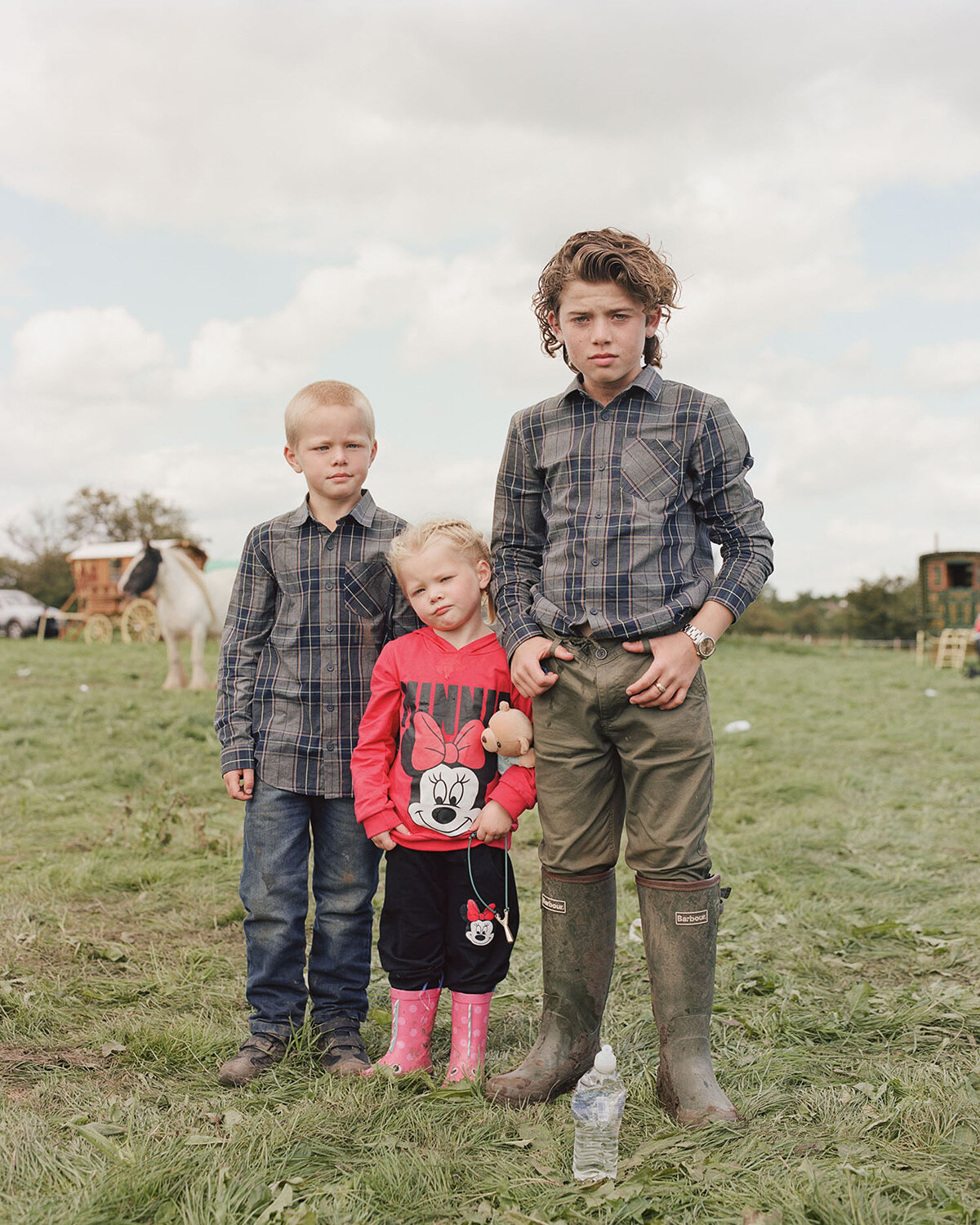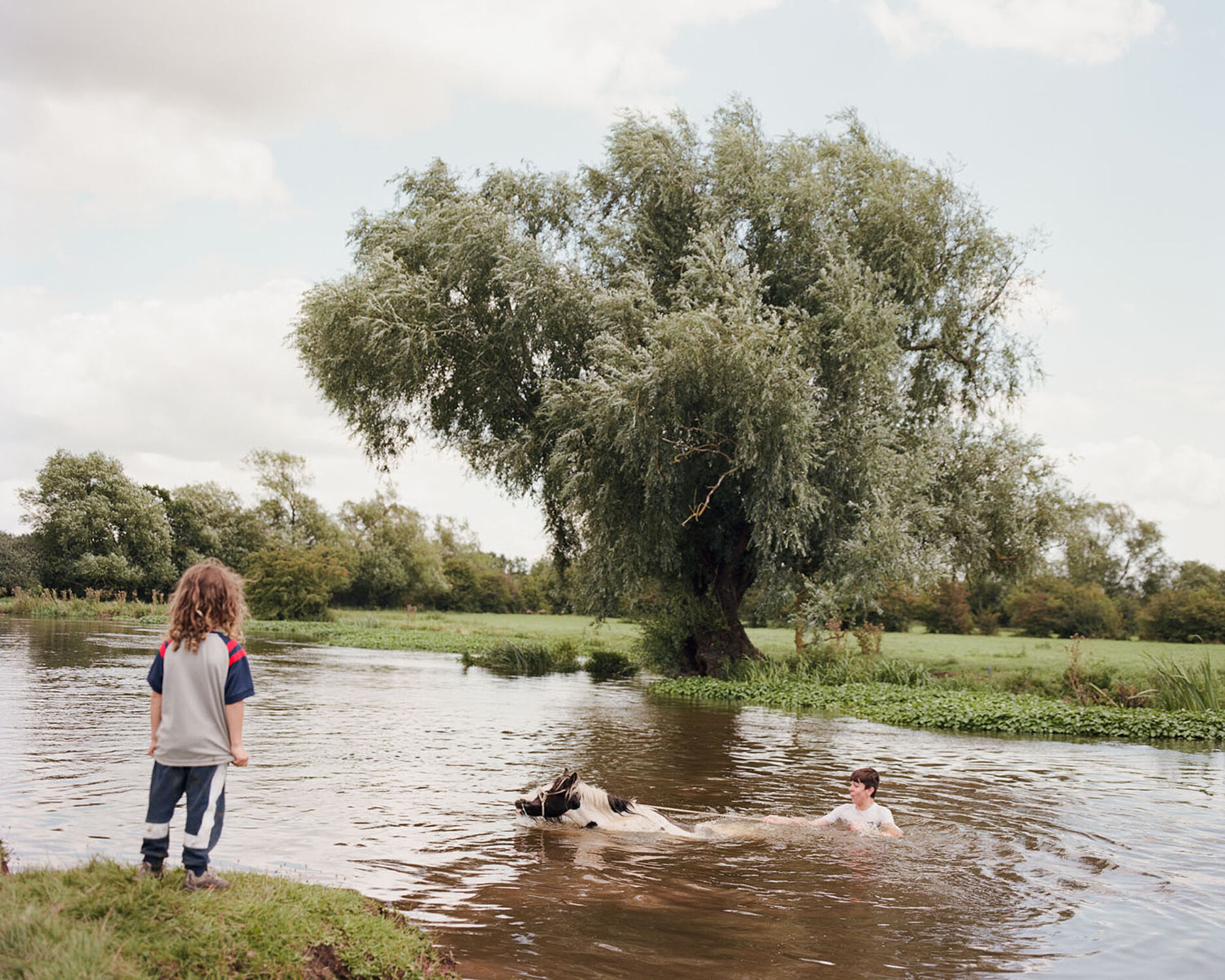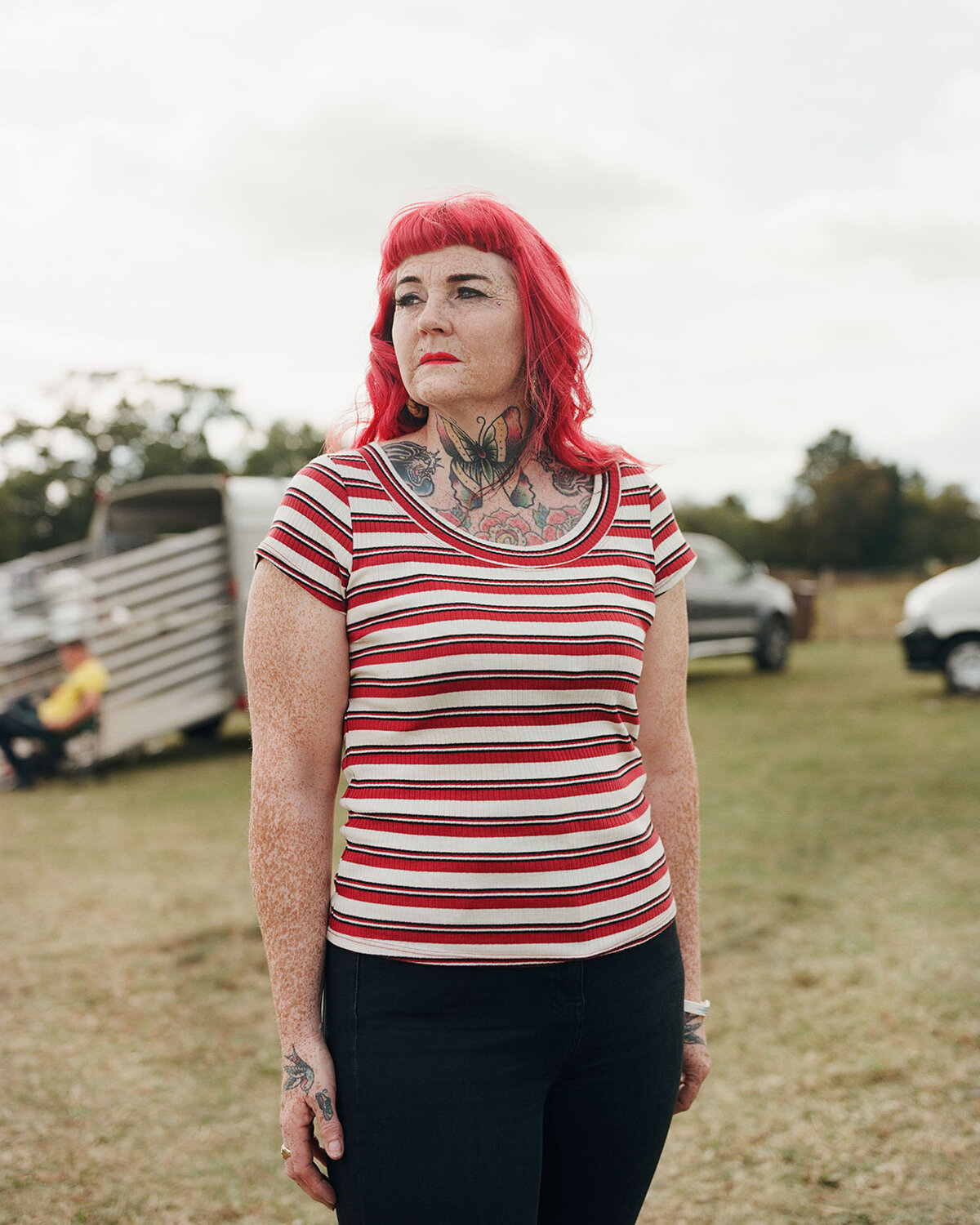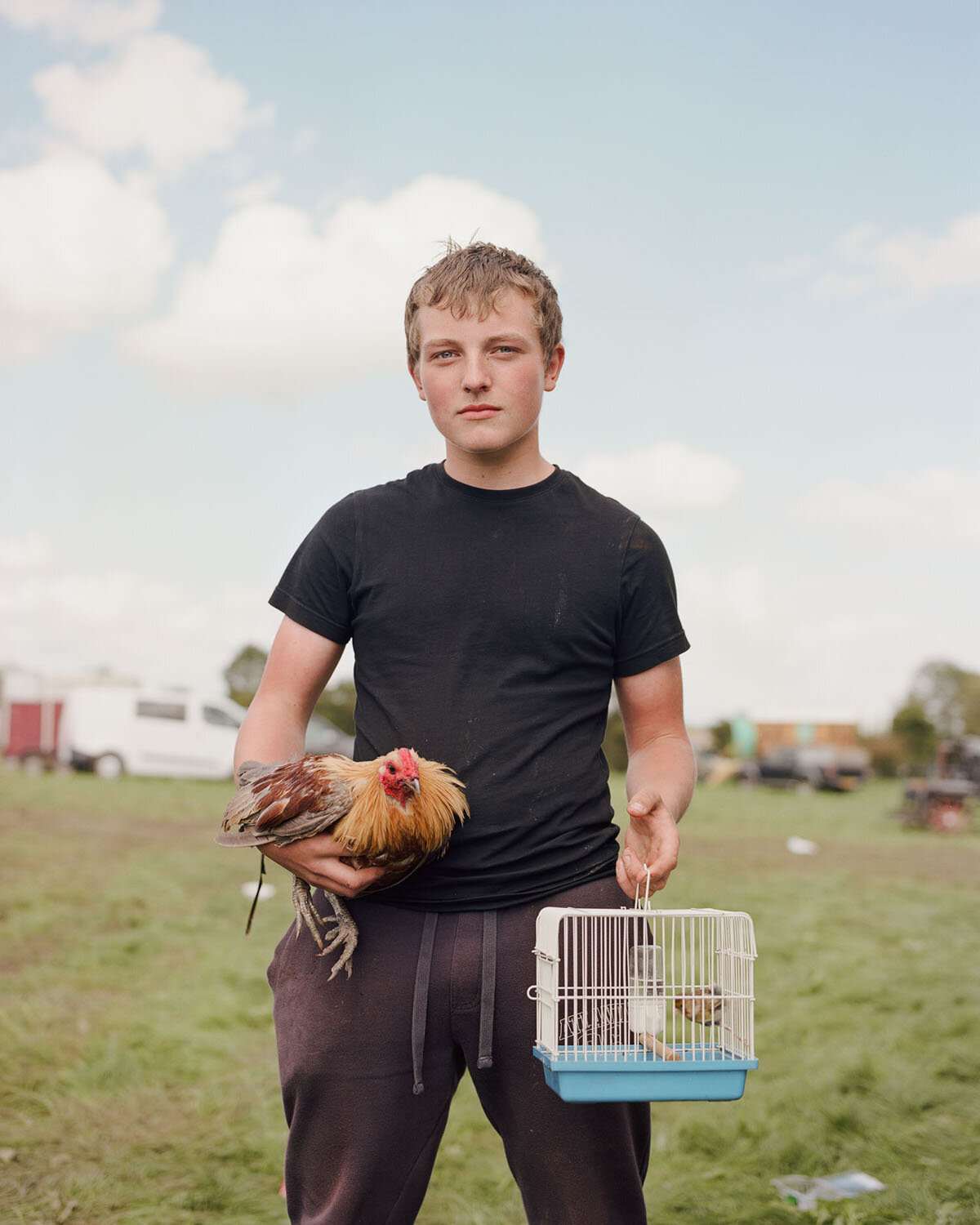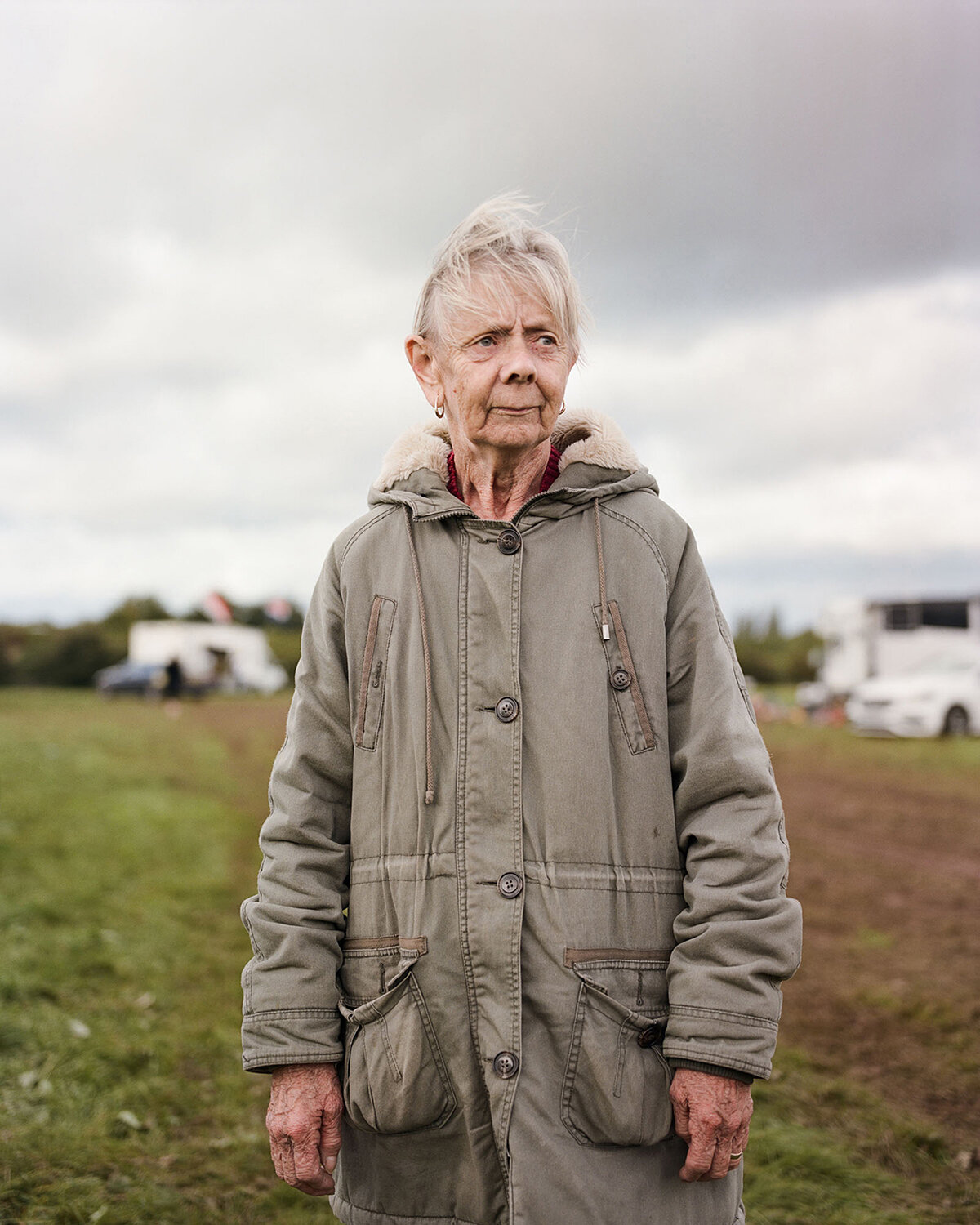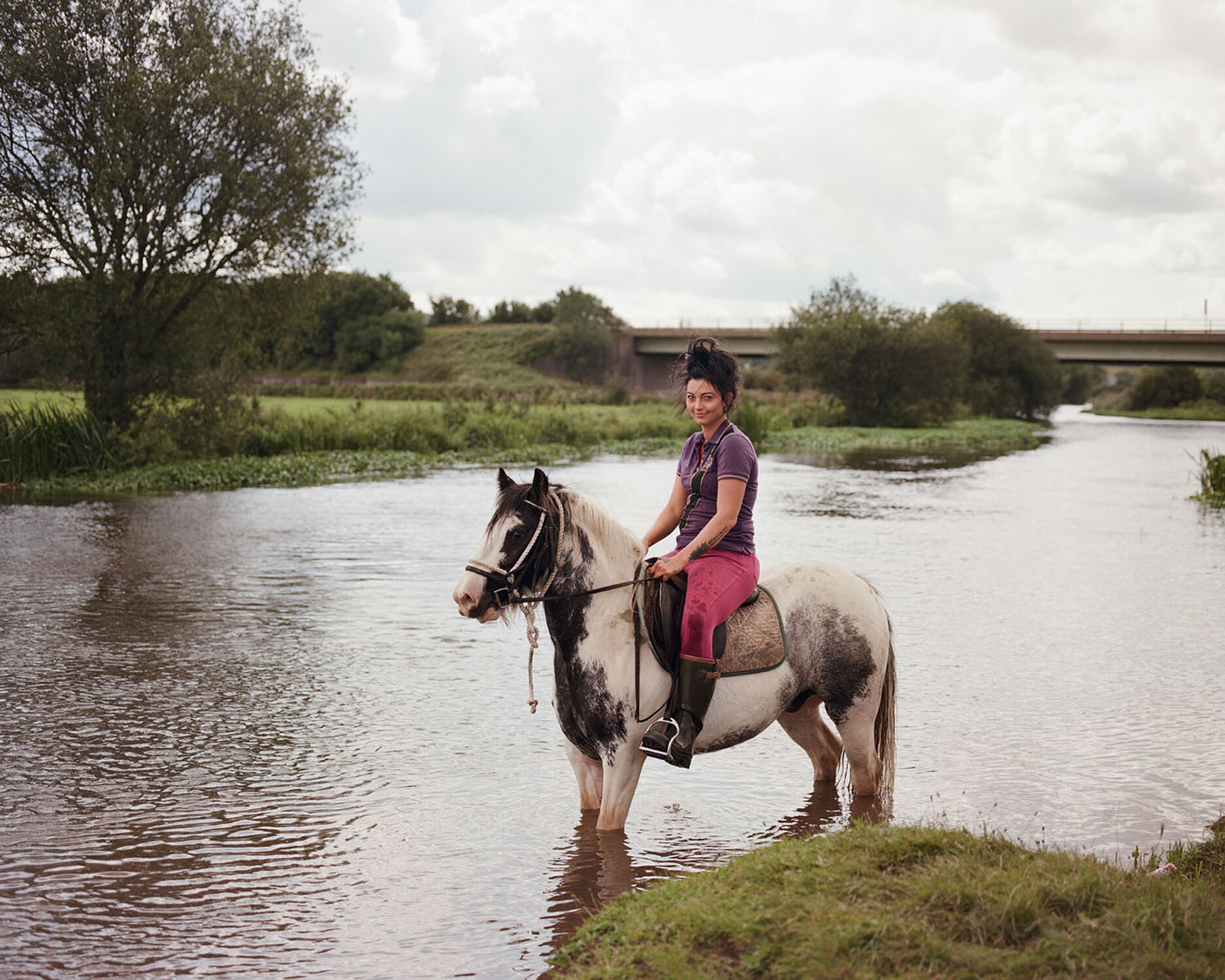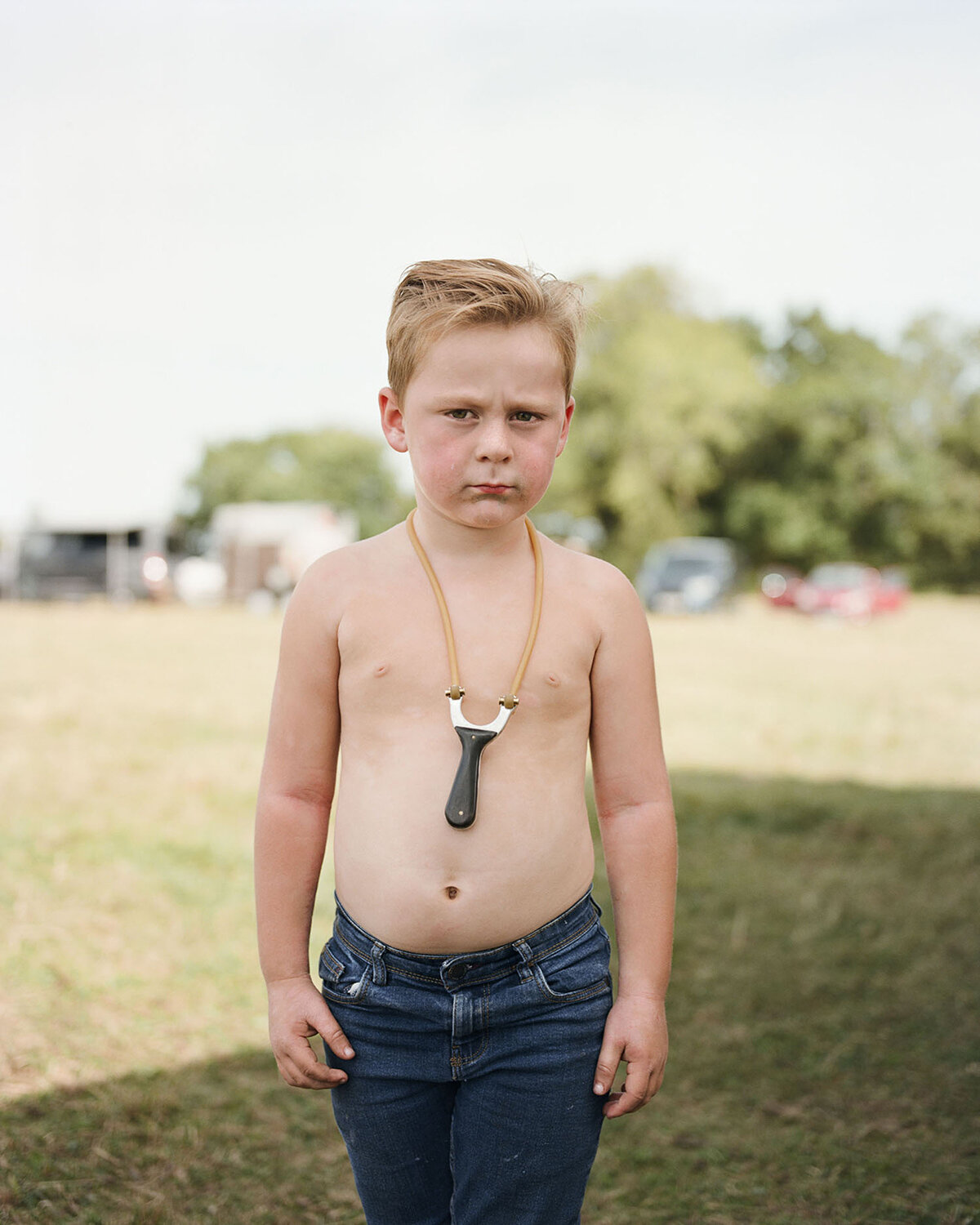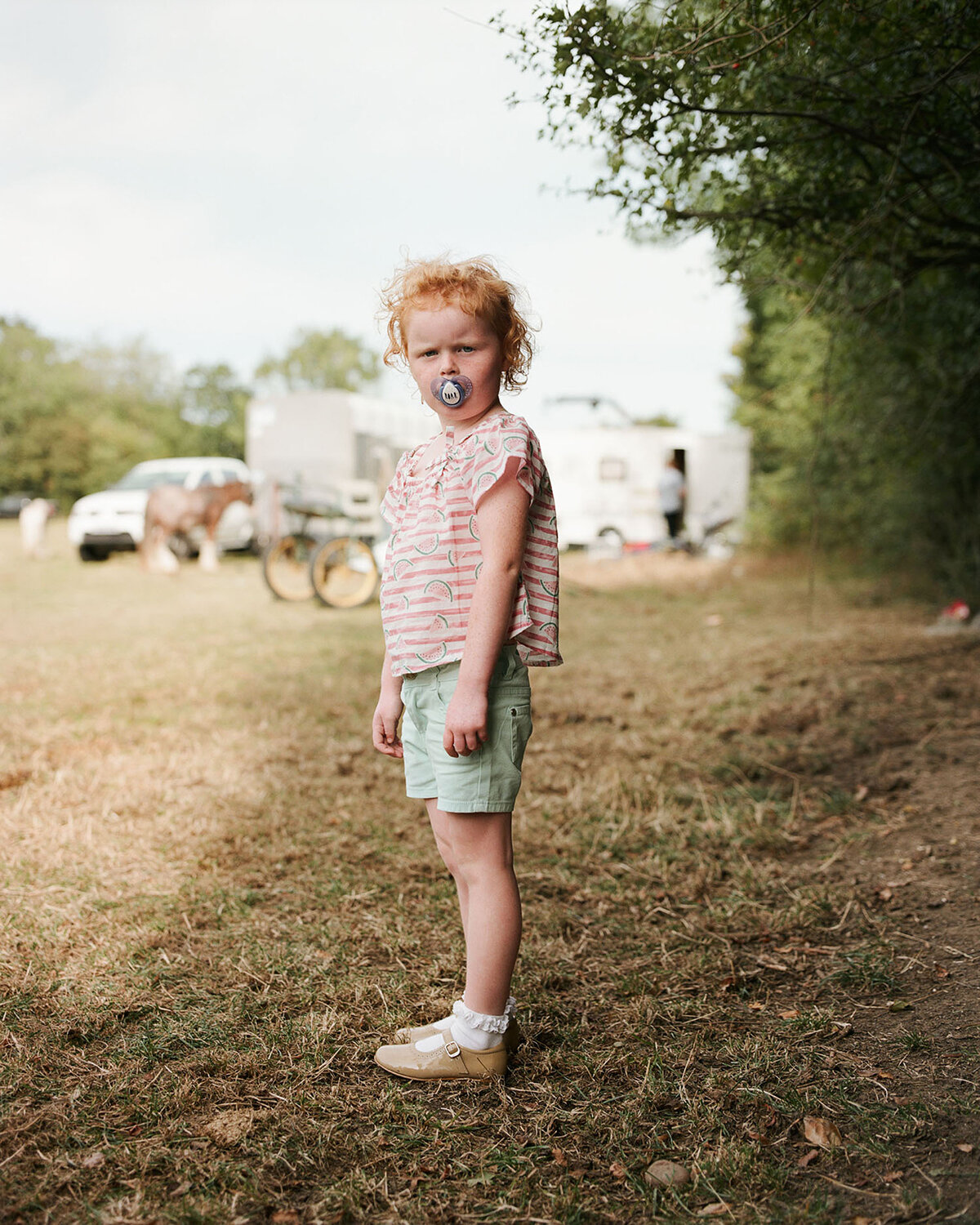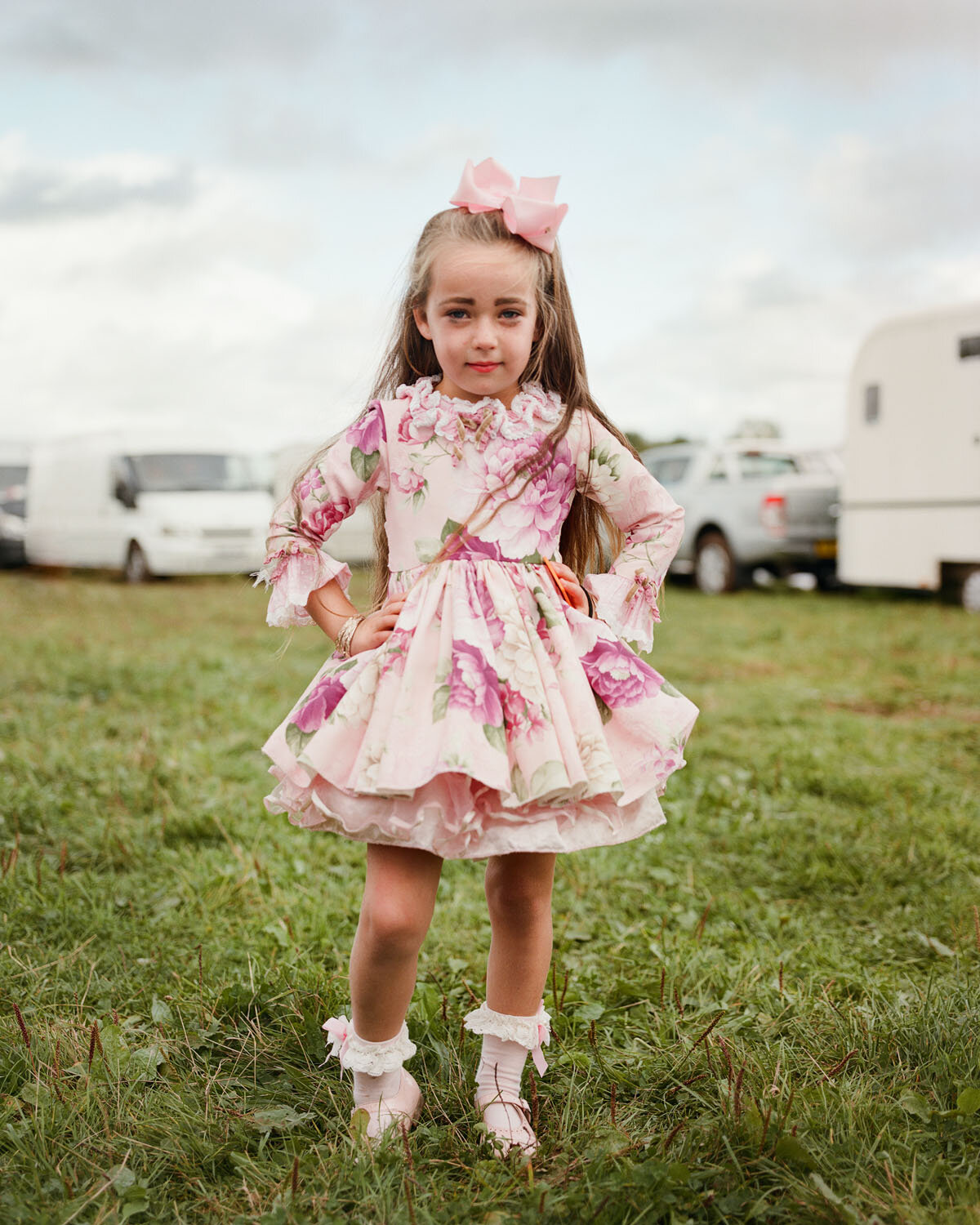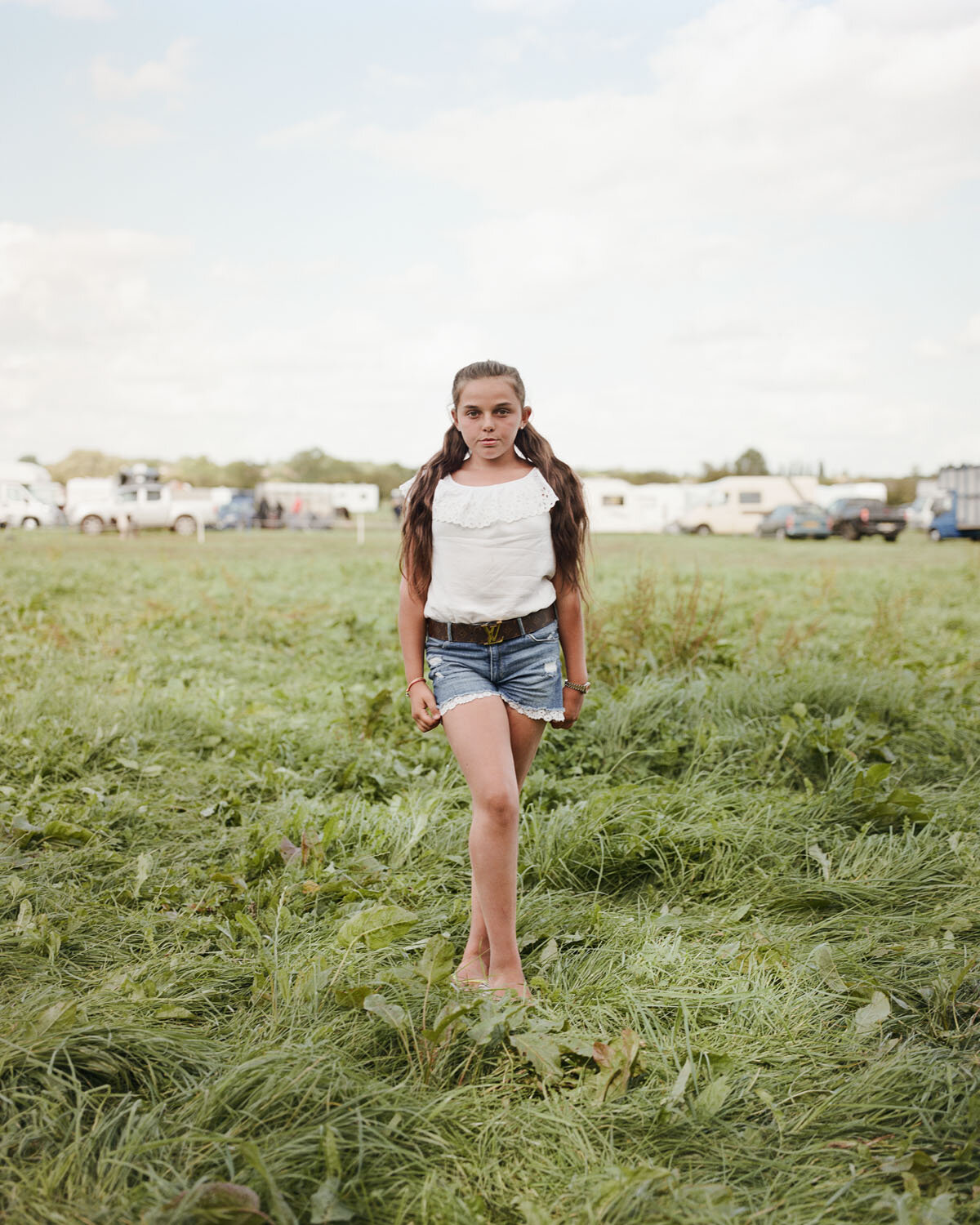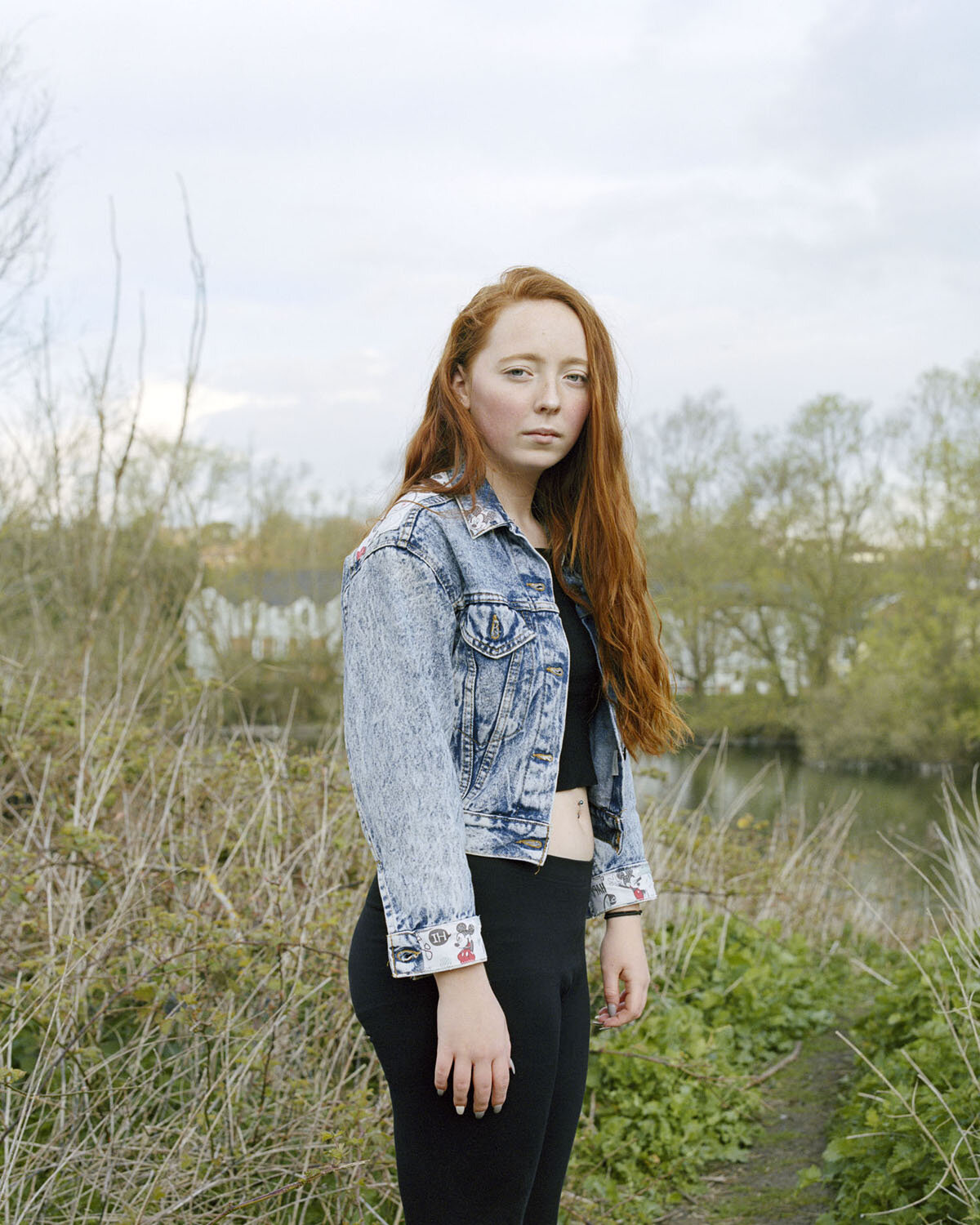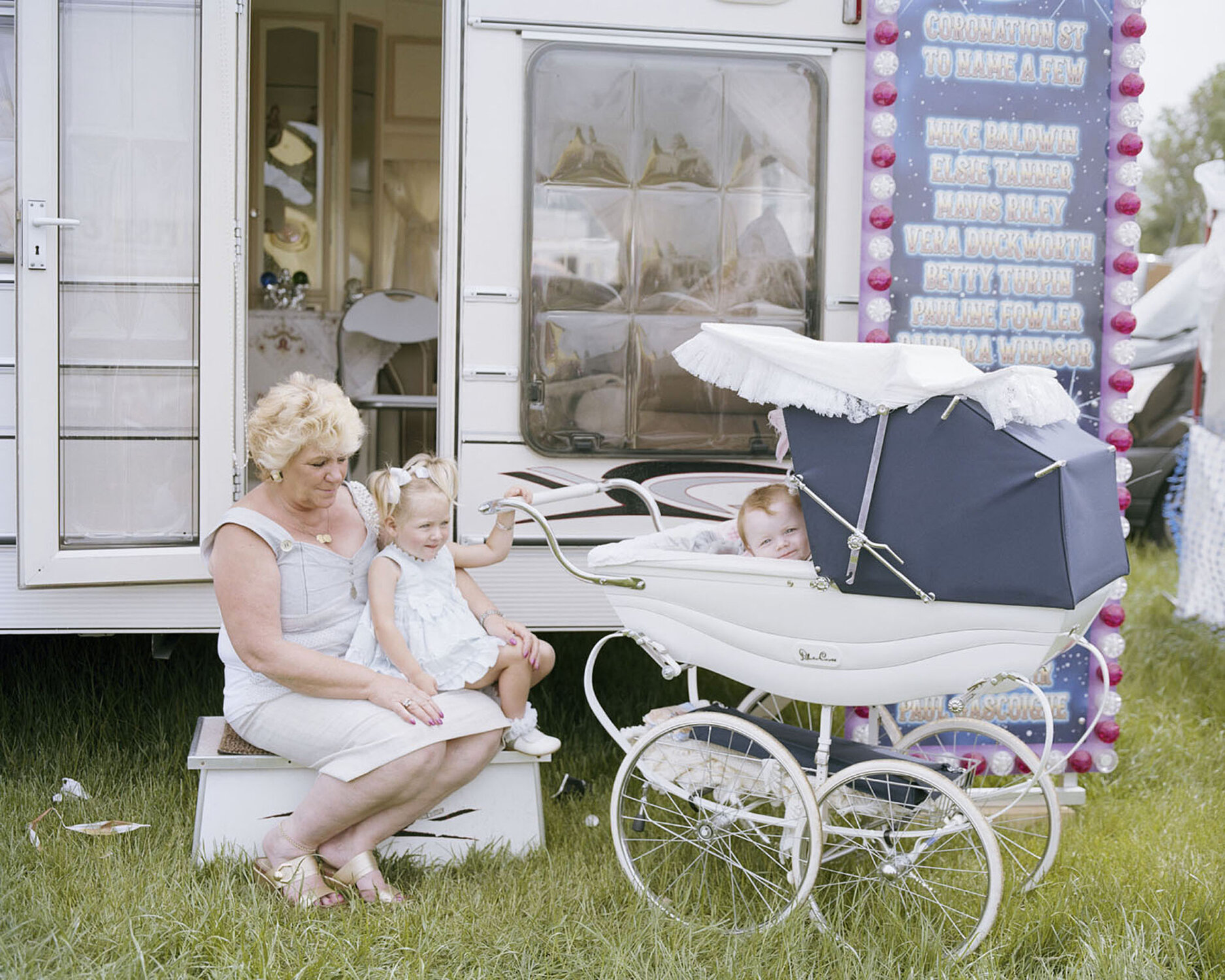Sandra Mickiewicz
Can you introduce your series ‘Proud Of The Orgin’
As the Gyps and Travellers community is a small minority in the hugely diverse British society, my intention was to portray them as sympathetic and sociable people as opposed to the typical stereotypes. I hope this project will contribute to changing the dominant point of view and our thinking about Gypsies and Travellers. Most importantly, I want the audience to realise that the subjects I photograph are valuable members of society. This body of work is still in progress and my aim is capture the resolute, spirited nature of the people I have met and the pride they rightly feel towards their ancestry.
What led you to be interested in photographing these horse fairs? was there a particular moment that began this project?
I’ve always been interested in the community as I find their lifestyle very interesting. I am really inspired by their culture, clothes they wear and their faces. To me these people stand out from the crowd, even in our everyday life. Because of their backgrounds and “typical stereotypes”, most Gypsies and Travellers had to face the racism and discrimination towards their culture and beliefs. Most of them are forced to hide their identity in order to attain employment or send their children to school. In this project, I want to explore their life traditions, and other aspects in their culture.
What does the itinerary or schedule of a horse fair look like and how do go about navigating your work within it?
I was invited to Appleby Horse Fair and I never heard of it before. It was the first time when I went to the horse fair. I spent 3 days there with one Gypsy family. Thanks to them I found it easier to photograph other people because I am not Gypsy or Traveller. After this event, I started to research about other fairs around the country and I remember I had to book holidays at work just to go out and shoot for a few days. What I liked about the small horse fairs was that there were less people and I managed to get to know the community closer. People I met at Dereham Horse Fair were also in Nottingham or Norwich. To build their trust, I also gave them small prints of the images I took and I also spent a lot of time just talking to people to get to know them.
You mention building trust within the community, are there moments you choose not to photograph, to simply step back and participate or observe that have helped you gain trust?
Before I took any images of people, I introduced myself and I told them briefly about my idea for the project. I think it's very important to talk to people and be honest. I spent a lot of time with people having conversations with them while we were having tea and a traditional cake. Most importantly, I gave them small prints of the images I took before and I think they really liked this small gesture. I like the idea of giving. Not just taking and leaving.
In what ways has making this series taken you by surprise? Are there any difficulties you have faced and how did you work through them?
When I started the project I wasn't really sure what I was doing and what I wanted to show. When I was at uni most of the time I struggled with the ideas for the projects we were given. Most of the time I came up with some ideas in the middle of the project when I started to shoot and then I had only two weeks left to create the final edit. This is what happened with this project as well. At the beginning I had no idea about the horse fairs at all. I struggled a lot with gaining access to the Gypsy community and I finally managed to get in touch with one lady who introduced me to people she knew. From there it all started to work somehow. I also got a lot of support from Simon Roberts- British artist and photographer who pushed me to create better work. It is very important to find someone who can help you and motivate you, especially when you are struggling.
Can you share more about how Simon Roberts pushed you as a mentor? In what ways did they help you step outside your comfort zone and what effect did this have on your work and / or mentality towards your creative process?
I was introduced to Simon Roberts' work when he came to Middlesex University and talked about his work. I was really fascinated by his portraits taken in Russia. When I worked with Simon in his studio, I also had a chance to look at his archives. I was really amazed by his photographs. Before we started work or after we finished he looked at my images and gave me constructive feedback. He even was critical of my images and this is what really helped me to be honest. When I went for another fair I always had his words somewhere in the back of my mind. I think when someone is critical about your work, usually it means they're trying to help you. I never take the criticism personally and I always try to understand another side of it. However, at the end of the day, it's all about your decision and whether you like the work or not. We are all different and we can't please everyone.
To keep up to date with Sandra’s latest work follow along here:
Website: https://www.sandramickiewicz.com/
Instagram: https://www.instagram.com/sandra_mickiewicz/

